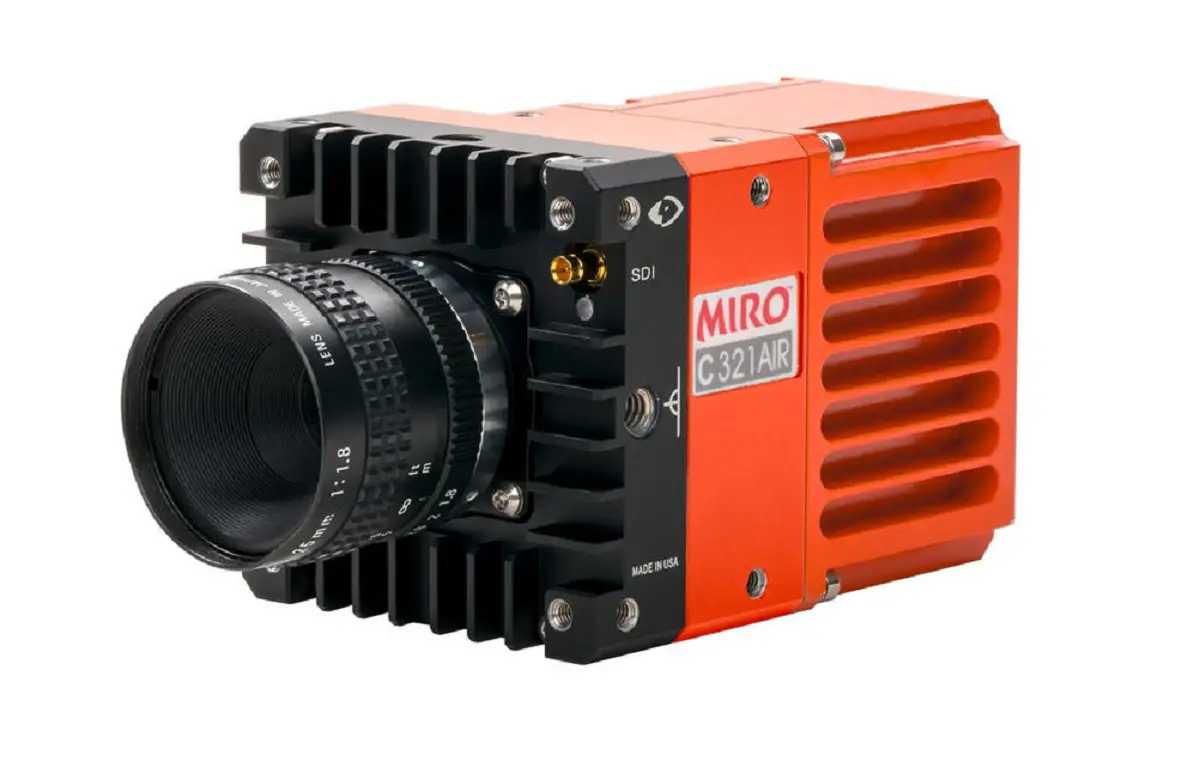Vision Research, a leading manufacturer of digital high-speed imaging systems, announces the release of its Phantom Miro C321 Air high-speed camera for airborne testing applications. This 2-megapixel camera leverages the rugged and field-proven design of the Phantom Miro C321 vehicle crash test camera to meet manned and unmanned airborne testing requirements. Specifically, its high frame rates and many advanced imaging features expand testing opportunities while offering unparalleled data security and meeting strict specifications related to environmental durability, EMI and avionics power.
“We’re thrilled to introduce the Phantom C321 Air to the airborne testing community,” says Kevin Gann, Vice President of Research and Development at Vision Research. “Our customers in the defense and aerospace fields need to conduct critical stores separation tests in demanding environments. As the high-speed camera market leader, Vision Research has the reputation, experience and knowledge to provide a differentiated camera that meets the most stringent demands of the airborne environment.”
The C321 Air achieves 1,480 frames per second (fps) at full HD (1920 x 1080) resolution and up to 94,000 fps at reduced resolutions. Because airborne tests often require lower frame rates, it unlocks additional testing opportunities for researchers while providing detailed, higher-quality images. The new camera also features a 10-micron pixel size for high sensitivity, low noise and high dynamic range to capture critical test events with minimal motion blur.
The C321 Air satisfies aerospace-specific specifications including one of the most difficult tests, the vibe test (MIL-STD 810H, Method 514.8, Category 12 (Jet), up to 26 Grms). The camera is also temperature tested to -55?C, includes conformal-coated boards to protect against humidity and offers a removable CFast solid-state drive (SSD), secured with a double-action latching door. Users can download shots to the flash in-flight, saving multiple captures from a mission.















